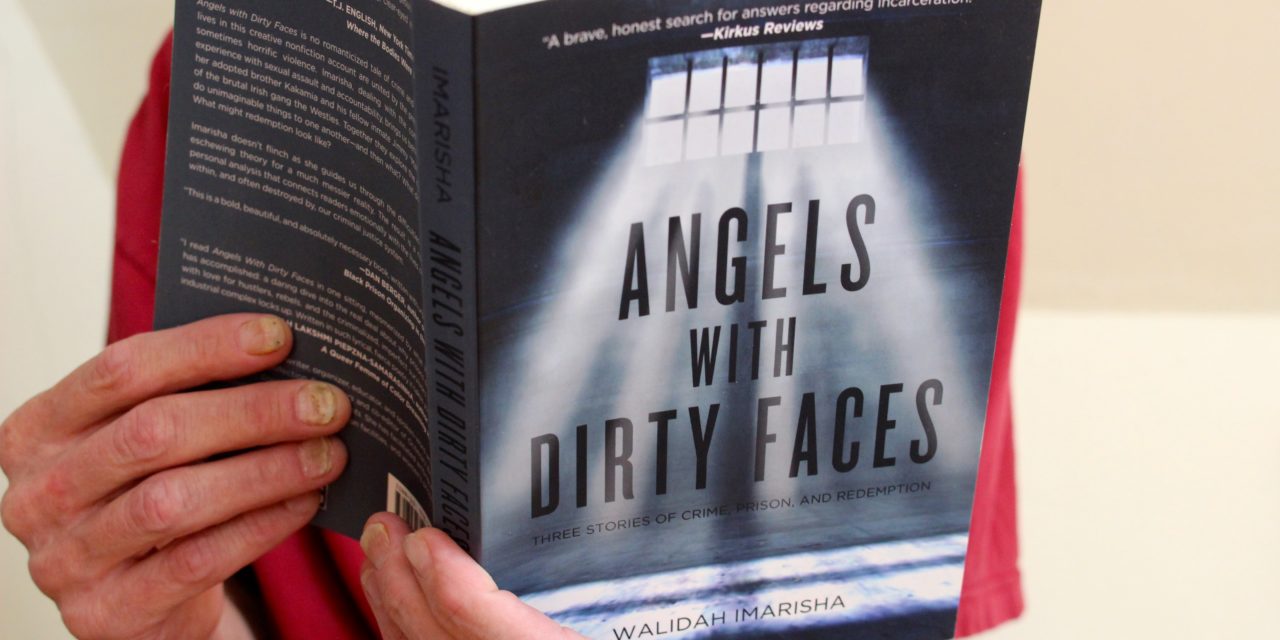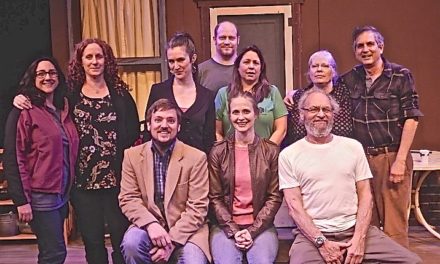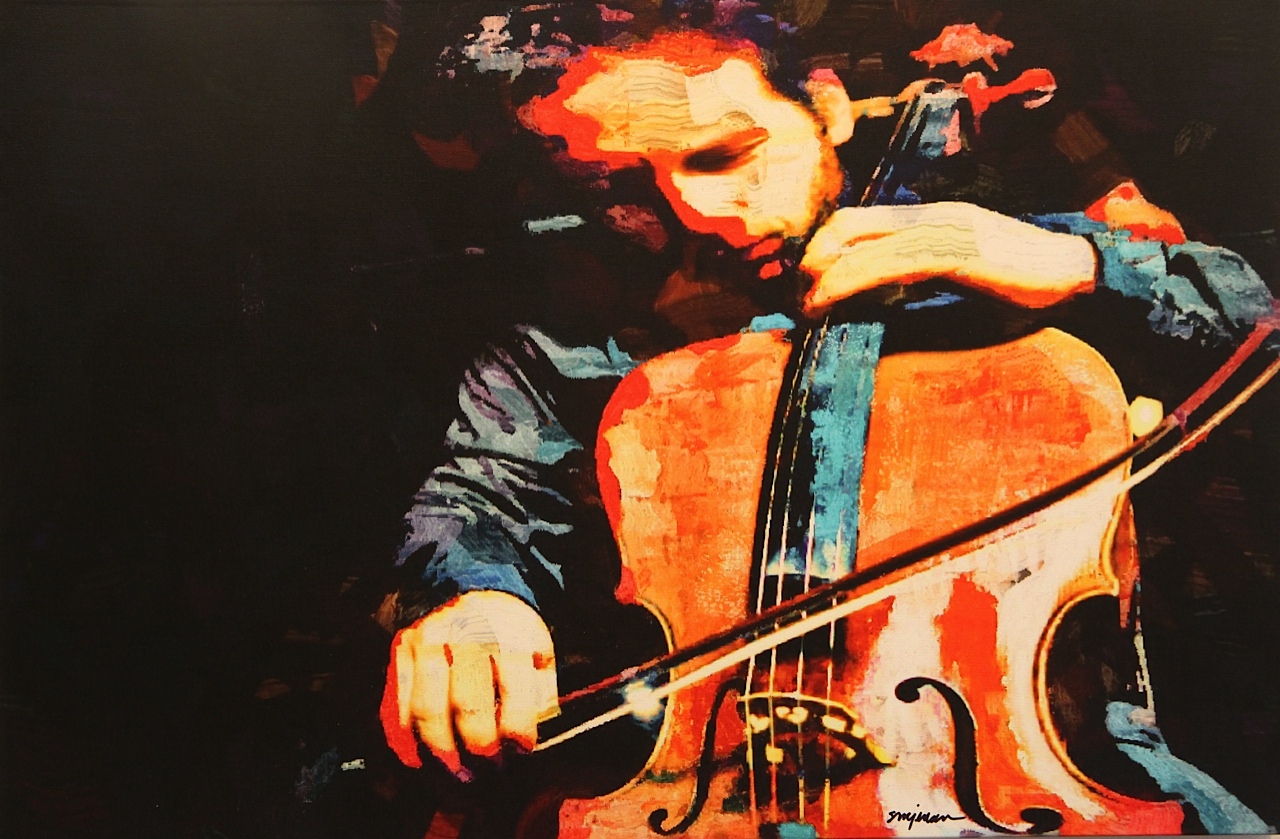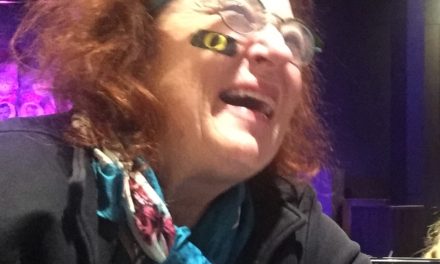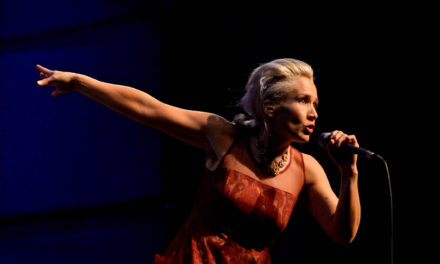Title: Angels with Dirty Faces: Three Stories of Crime, Prison, and Redemption
Author: Walidah Imarisha
Publisher: AK Press, Oakland, Calif., 2016
Details: Winner of the 2017 Oregon Book Awards, Sarah Winnemucca Award for Creative Nonfiction
By Daniel Buckwalter
The colors of the contradictions that swirl in all of us, from fiery red to tranquil blue to emotionless gray, are like virtual brushstrokes that others glimpse as we put ourselves in their view.
It might not be fair — people are, after all, never-finished canvases — but others often define us as we appear to them in a single instant, captured by one stroke of the artist’s brush, a quick, single-frame caricature rather than a deeply examined portrait.
It raises the question: What is fact, and what is fiction?

Literary reviewer Daniel Buckwalter; photo by Randi Bjornstad
The same idea applies to Walidah Imarisha’s Angels with Dirty Faces, Three Stories of Crime, Prison, and Redemption. It’s a clear-eyed look at the virtual canvases that portray people in the U.S. prison system who never had a chance to paint themselves in bright colors and who too often never will.
For them, the die — or dye, if you will — was cast at birth, either by economic circumstances, the color of their skin, or both.
There was no brighter palette available to them.
The effect of poverty and color
Angels with Dirty Faces is partly memoir, chronicling Imarisha’s often lonely upbringing in small-town Oregon as an African American daughter of a single Caucasian mother.
There is the unsparing look at her adopted brother (Kakamia Jahad Imarisha) and his friend in the California prison system, James “Mac” McElroy, a convicted hit man for the Gambino crime family.
Both born in New York City, they nonetheless end up in California for different reasons, but birth and background means they have NYC in their blood, and that is how their friendship begins.
Neither had a clue how to escape the familial and societal despair and desperation of their early lives. Nor did they have much choice in the matter, as is the case with most prisoners. They act bigger, as children, than they should. Their sense of manhood is warped.
“Most of all, I have learned many prisoners’ lives were cages before they ever stepped into a prison,” Imarisha writes. “I have learned that poverty confines, hunger contains, homelessness chokes, powerlessness restricts, and oppression destroys. I have learned we all have prisons in our lives, and most of us are too frightened to look directly at them.”
There is also the cold-blooded look inside the prisons where Imarisha has visited: the cafeterias that are overcrowded with bunks to make room for more prisoners; the razor-sharp barb wire; and the relentlessly dour looks of the guards whose jobs are to keep the inmates on their toes.
“I have been to the white-hot hell of Texas’ death row,” she writes, “and to the stainless steel brutality of Pennsylvania’s most infamous housing unit. I have gone behind the walls, and I have the heartbreaking privilege to walk out of them every time.”
There are the sounds, too. Always, she said, there are the jarring sounds that disturb infrequent peace, “the metallic sound of bolts sliding from the roller pounded like thunder, signifying that a prisoner was coming out.”
Societal failure
Imarisha is a researcher and instructor of Black Studies at Portland State University. She also is an anti-prisoner organizer who has made a career — a calling — of studying the American prison system, the people in it and who run it.
She saves her most blistering attacks for how this system was founded, both from an historical perspective and, starting in the 1980s, the modern day industrial complex it has become. American communities now fight for a piece of the economic action that prisons pretend to bring, and no one is thinking of rehabilitation.
“One in one hundred adults are living behind bars, according to the Pew Charitable Trusts, and over seven million are in prison or on parole,” Imarisha writes. “American prisons account fully for one-quarter of the entire world prison population. Is this the ‘number one’ people are always shouting about?”
Imarisha continued, “Our current prison system mushroomed after the end of legal slavery. As Angela Davis wrote, the very time that Black people broke the shackles of slavery, the shackles of prison snapped tight on their wrists.”
One result is that America has become immune to the prison industrial complex it has created (with a good many locked up for non-violent crimes) and the damage it has done to them, their families and their communities, Imarisha argues.
“We, the general public, take prisons for granted, and at the same time we try our very best not to think too hard about prisons themselves; what happens inside them, what leads up to someone going into prison.”
But some who grow up in a world of despair and desperation never enter prison. They do gain distance and establish lives in the mainstream. Imarisha did. Why not her adopted brother, Kakamia (murder, attempted murder and conspiracy as a teenager), or Mac (a paid assassin), or the many others?
Point of no return
Imarisha has an idea why. She goes back to the 1938 film Angels with Dirty Faces. It stars James Cagney, who plays the character of Rocky Sullivan, growing up in New York City’s Hell’s Kitchen in the early 1900s with his best friend, Jerry Connolly.
They “got into the kind of trouble poor kids in a city got into. They stole to eat. Then they robbed a railroad car. The police gave chase. Rocky saves Jerry’s life by pulling him out of the way of a steam train,” Imarisha summarizes.
“Rocky gets caught by the police. His friend Jerry, who could run faster, does not. Rocky goes to reform school, graduates to more crime, spends more time in prison, and becomes one of the most notorious gangsters. Jerry stays in the neighborhood and becomes a priest.”
Rocky married. He tried to reform, but he kills another gangster, is convicted and sentenced to the electric chair. Jerry comes to him with a proposal. He wants Rocky “to die as a rotten sniveling coward,” as a crime deterrent to the boys who look up to him.
Rocky refuses at first, but at the moment of execution, “He begs. He pleads for his life. He dies crying. Begging. The reporters capture it.”
Jerry the priest reads the news story to the young boys. “The priest tells them, ‘Pray with me. Pray with me for a boy who couldn’t run as fast as I could.’ ”
Imarisha believes the character of Rocky “did the bravest thing he had probably ever done in his entire renegade life. He made a decision to tell the truth. To remove the façade. To show the pain he carried, masked as bravado. To beg, not truly for his life, but for the lives of those boys who looked up to him.”
Kakamia and Mac do the same thing, and that breathtaking honesty is what makes the book called Angels with Dirty Faces a hard read. A thorough exam always yields the contradictions of fiery red certainties with a mismatch of colors that are subject to interpretation: What is fact and what is fiction?
Imarisha is relentless in her determination to get to the core of the answer. Early in the book she writes about it. I have it taped to a wall at my home.
“These things I believe to be true, well aware that in reality nothing is true, and even our own memories can be fiction. Any nonfiction book must be read partially as fiction, for we all tell ourselves stories to make sense of our lives.”
Angels with Dirty Faces is one example of why I enjoy reading almost anything, willing to examine the “single frame” but also eager to place it in the larger context that helps separate fact from fiction.
At the same time, I realize there’s a hint of privilege speaking here. Through birth and background I have mostly been afforded the opportunity to fully read and grasp the varying hues of a character’s brush strokes. I’ve even been paid to do it.
Not everyone has the luxury to experiment with life’s colors and shapes. The crushing hammer of poverty, and its splattering of despair, can compress lush, green landscapes at the same time it reveals jagged peaks of anger and agony for too many of the “single frames” in this country.
For all these reasons, I encourage everyone to read —with open minds — Walidah Imarisha’s remarkable creative nonfiction book, Angels with Dirty Faces: Three Stories of Crime, Prison, and Redemption.

